In 1938 and 1939, readers of The New Yorker were treated to a series of satirical statue designs by cartoonist Richard Taylor. Presented singly in the magazine, they went under the shared title A Revised Statuary for the City of Tomorrow. One of the originals from the set, Morse, was sold this past summer at Winter Associates, Inc., of Plainville, Connecticut. The frame has a price sticker of $350, and the work was given a presale estimate of $200 to $400. It is correctly dated to the 1930s.
Some explanation might be in order today. Morse, the main figure of the public sculpture who is seen standing at his writing desk, is Samuel F. B. Morse, the painter and also the inventor of Morse Code. The monument's inscription Don't Write, Send a Night Letter refers to reduced rate telegrams sent overnight and delivered the following morning. These night letters had been popular, necessitating the many sculpted telegram messengers sitting on the statue's wraparound bench, but they were well in decline by the late 1930s; thus the lone living telegram messenger seen in the drawing. The telephone was making the telegram obsolete.
Taylor drew his signature onto the base as if it were incised in the stone, but he signed the matte loosely with his full first name. Now the signed matte is aging faster than the artwork it is meant to protect, and the new owner may have to make a decision about whether it should be removed and replaced.

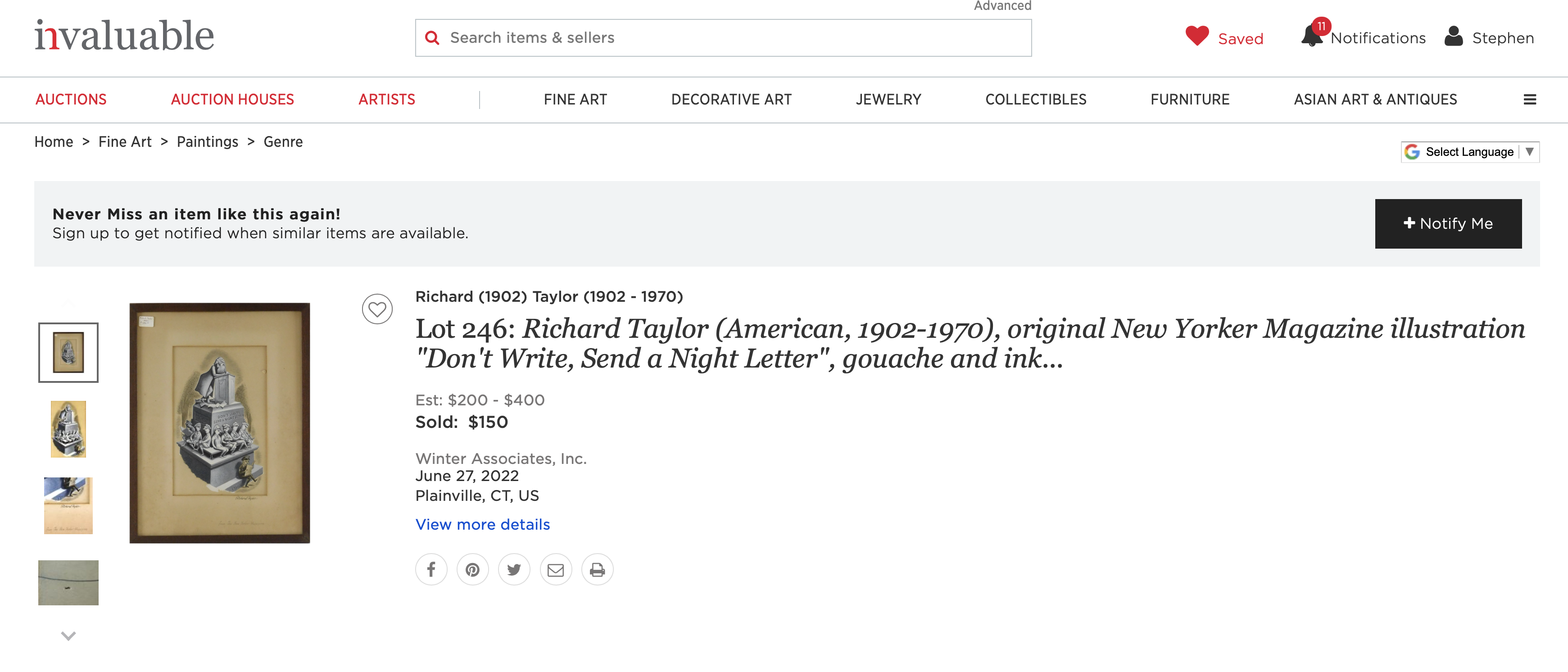

The $150 sale price does seem inexpensive for such a beautiful drawing, but then the gag itself may not have aged all that well for the modern reader who communicates by email and text message.
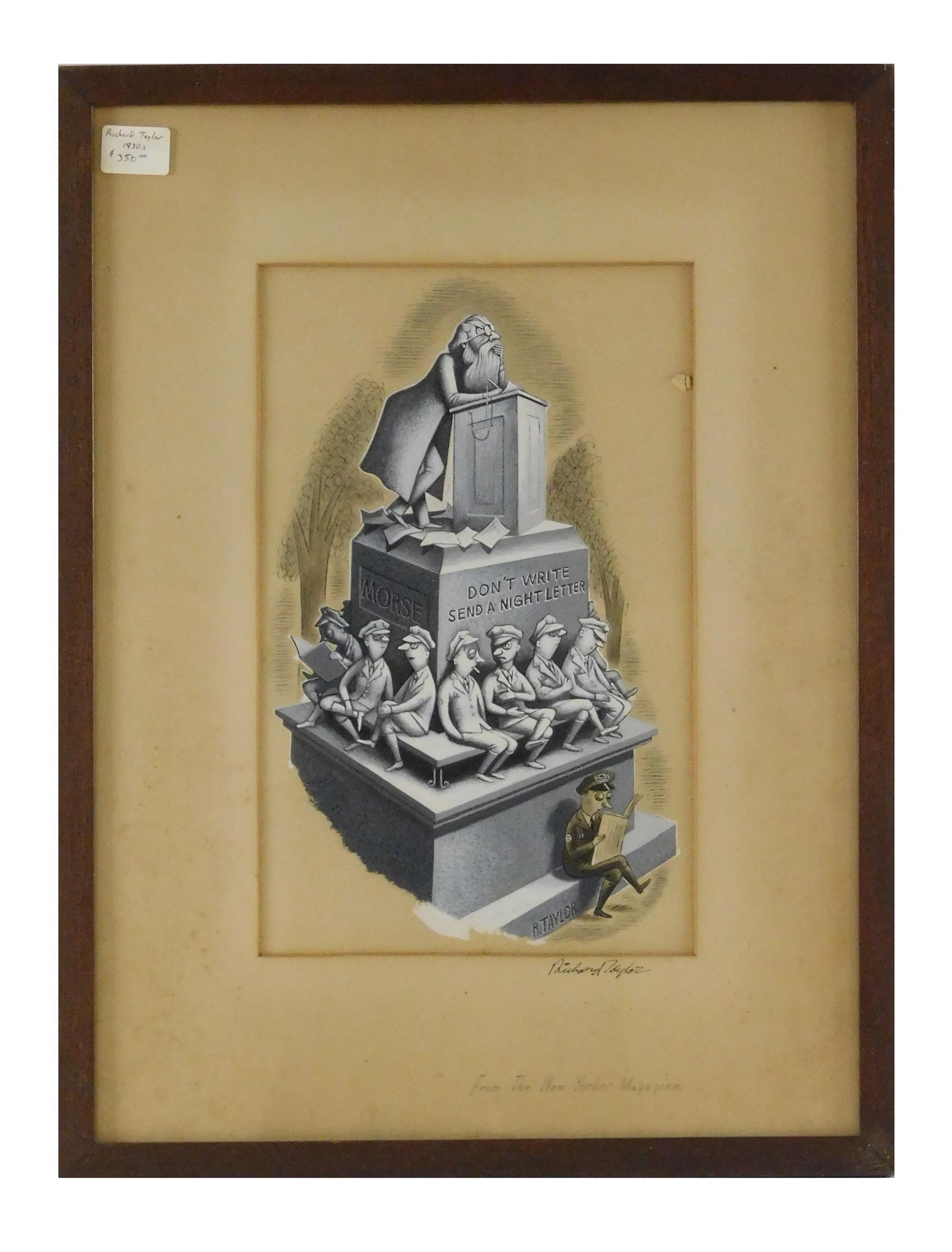 |
A Revised Statuary for the City of Tomorrow: Morse Richard Taylor Framed original art The New Yorker, August 27, 1945, p. 20 |
Some explanation might be in order today. Morse, the main figure of the public sculpture who is seen standing at his writing desk, is Samuel F. B. Morse, the painter and also the inventor of Morse Code. The monument's inscription Don't Write, Send a Night Letter refers to reduced rate telegrams sent overnight and delivered the following morning. These night letters had been popular, necessitating the many sculpted telegram messengers sitting on the statue's wraparound bench, but they were well in decline by the late 1930s; thus the lone living telegram messenger seen in the drawing. The telephone was making the telegram obsolete.
 |
A Revised Statuary for the City of Tomorrow: Morse Richard Taylor Original art The New Yorker, August 27, 1938, p. 20 |
Taylor drew his signature onto the base as if it were incised in the stone, but he signed the matte loosely with his full first name. Now the signed matte is aging faster than the artwork it is meant to protect, and the new owner may have to make a decision about whether it should be removed and replaced.

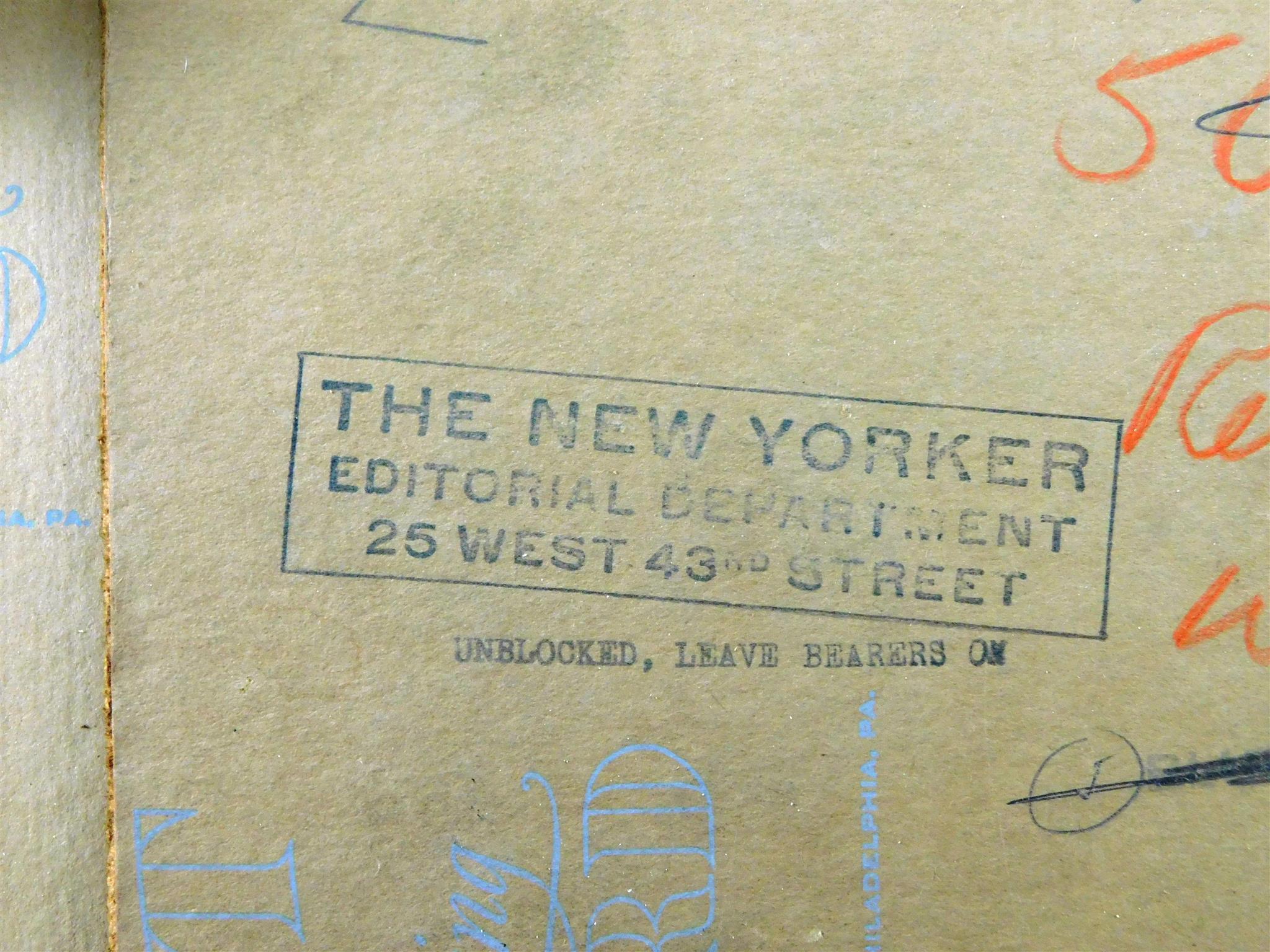 |
| Verso |


 |
| Richard Taylor Winter Associates, Inc., June 27, 2022 sale |
The $150 sale price does seem inexpensive for such a beautiful drawing, but then the gag itself may not have aged all that well for the modern reader who communicates by email and text message.
A Revised Statuary for the City of Tomorrow: Morse
Richard Taylor
Original art
The New Yorker, August 27, 1938, p. 20
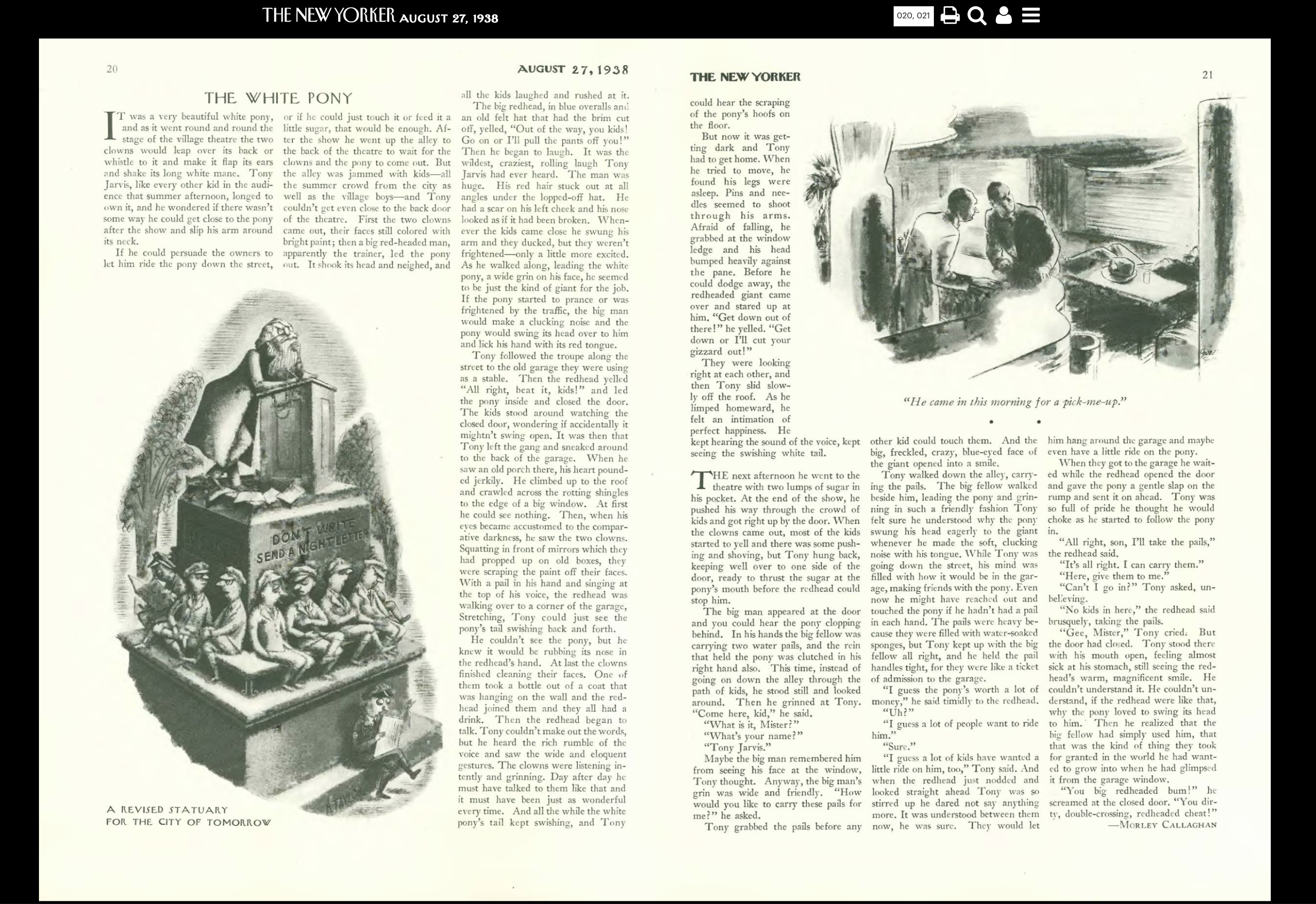 |
| Cartoons by Richard Taylor and Garrett Price |
Most of the published Revised Statuary drawings, including Morse, were collected in The Better Taylors (1944).


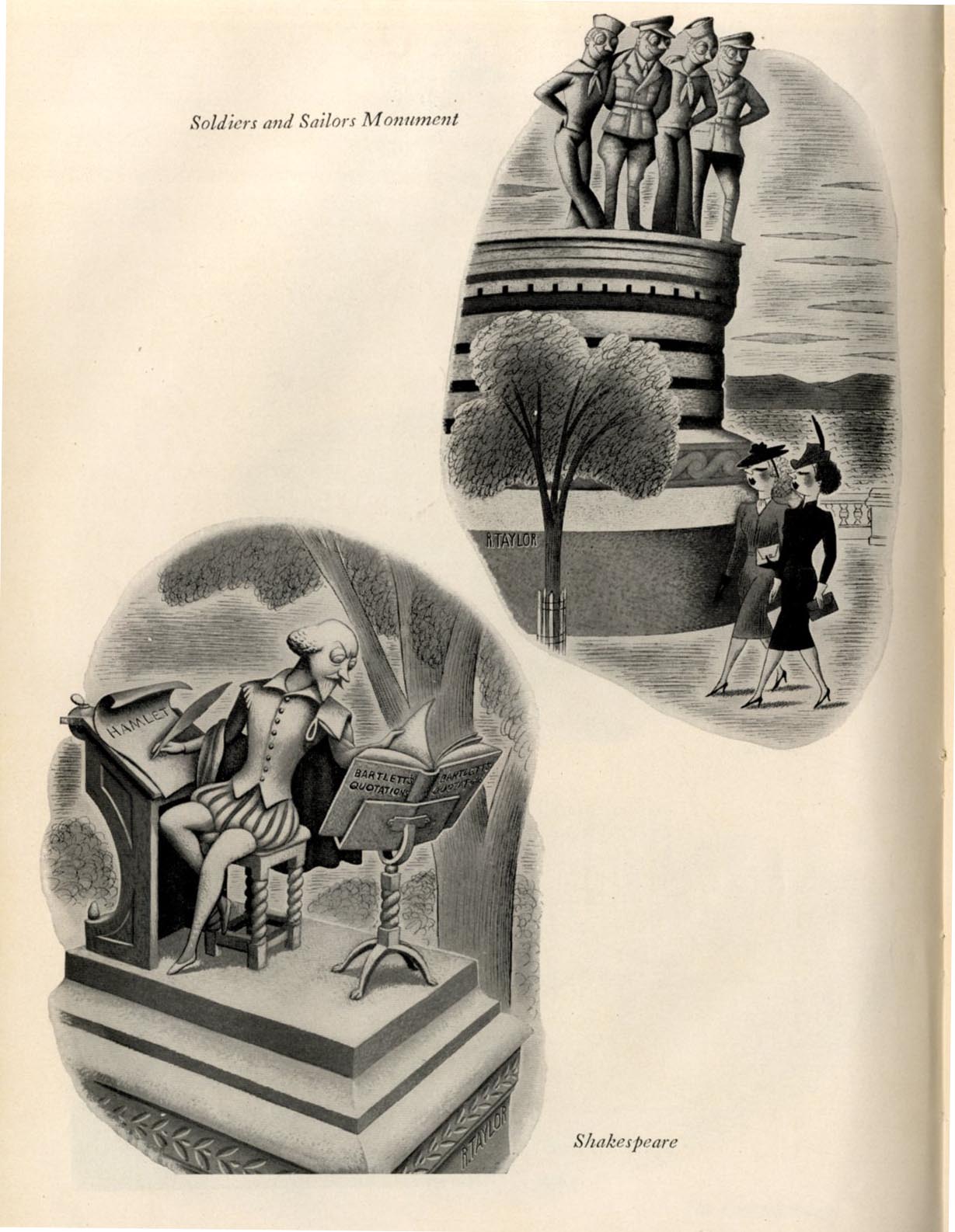 |
| https://www.fulltable.com/VTS/n/y/tt/b.htm |
Then there are two others statues familiar to those who frequent Columbus Circle and Central Park:
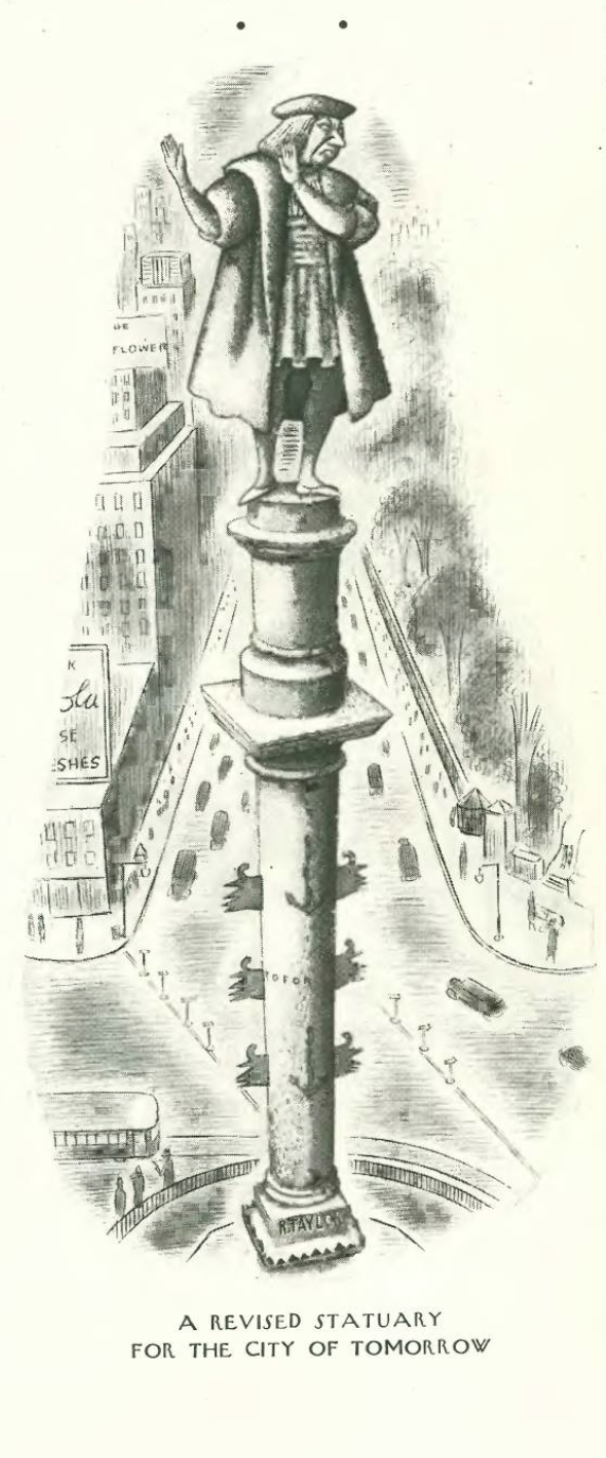 |
A Revised Statuary for the City of Tomorrow: Columbus Richard Taylor The New Yorker, August 13, 1938, p. 21 |
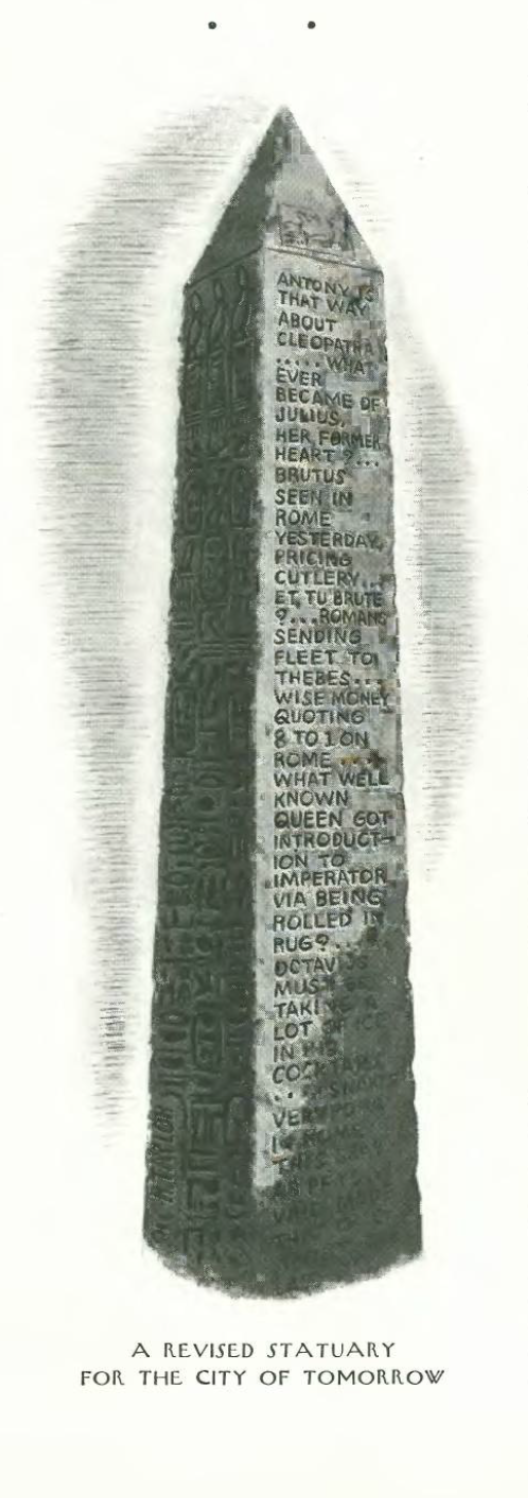 |
| A Revised Statuary for the City of Tomorrow: Cleopatra's Needle Richard Taylor The New Yorker, January 14, 1939, p. 27 |
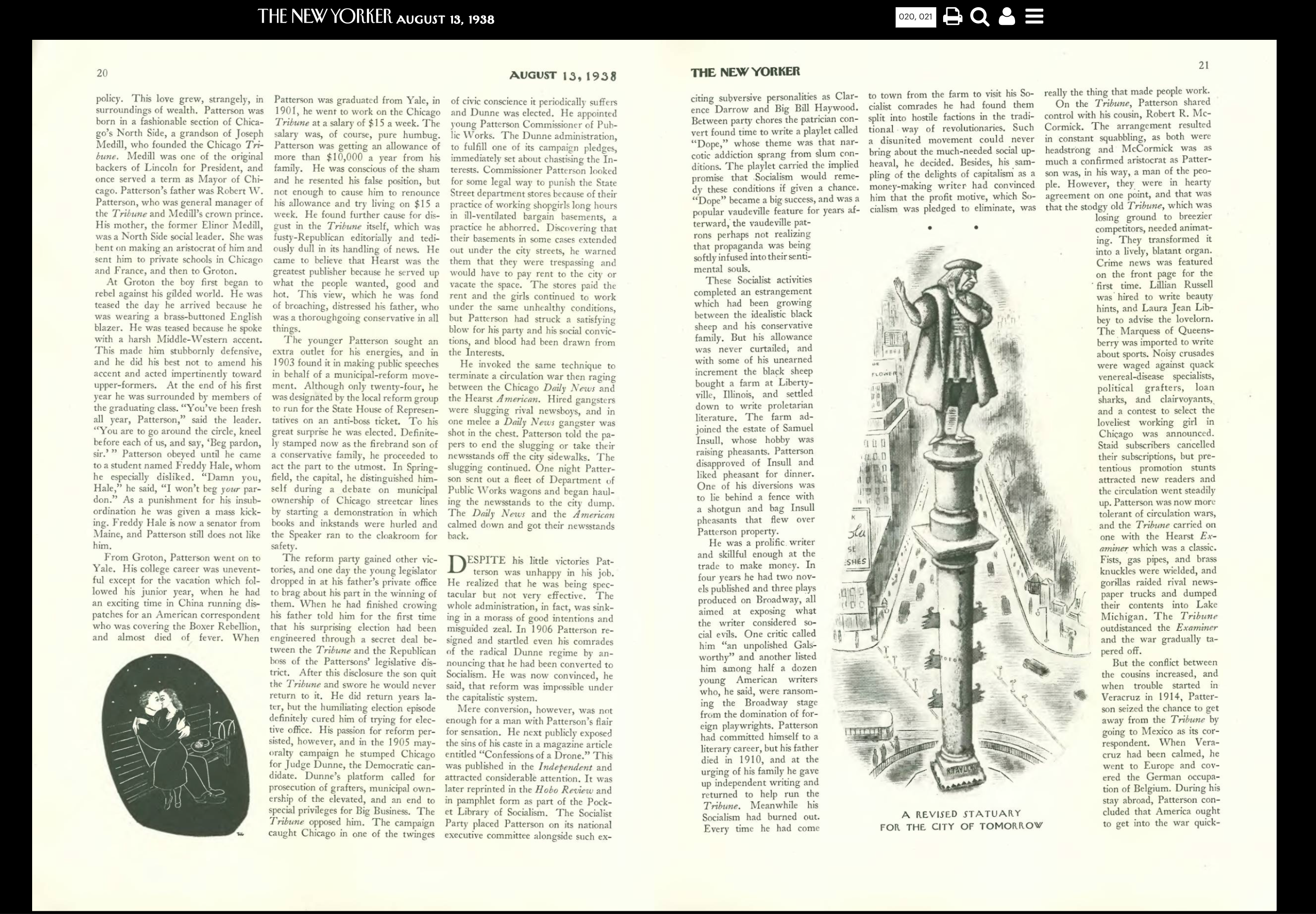 |
| A spot drawing by an unidentified artist [Tito?] and a cartoon by Richard Taylor |
 |
| A spot drawing by Arthur Getz and a cartoon by Richard Taylor |
Note: Having mentioned the book, I find it hard not to share a few images from a fine copy of The Better Taylors (1945 reprint edition from the World Publishing Company) currently listed on AbeBooks for $250, which is more, I'll just note, than the cost of the Taylor original seen above:


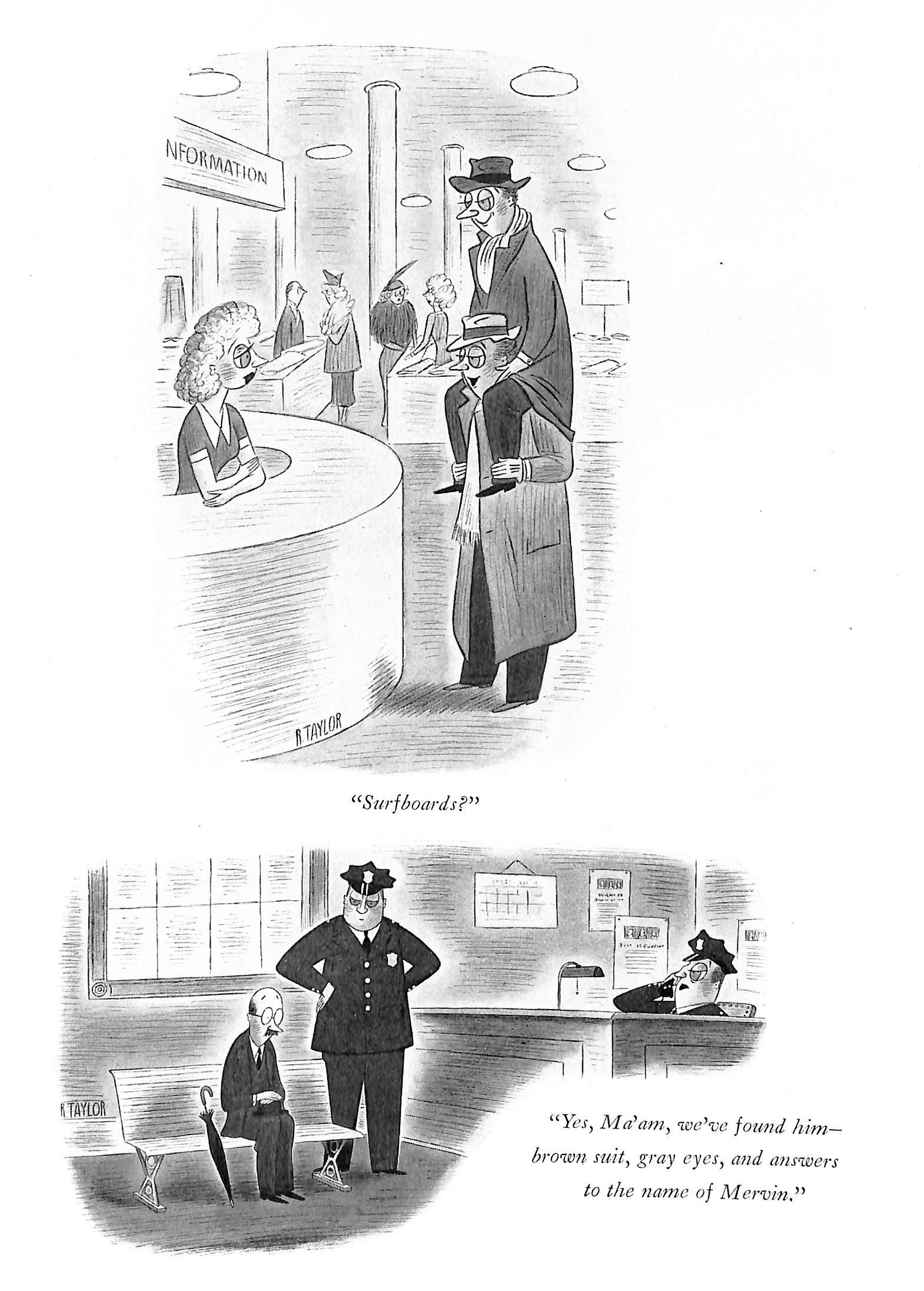 |
| https://www.abebooks.com/servlet/BookDetailsPL?bi=30891484001&searchurl=an%3Dtaylor%2Brichard%26sortby%3D17%26tn%3Dbetter%2Btaylors%2Balbum%2Bcartoons&cm_sp=snippet-_-srp1-_-title2 |
And, finally, here are a few of the other images from The New Yorker's pages. Can anyone identify this spot artist possibly named Tito?
 |
| Spot drawing Artist Unidentified [Tito?] |
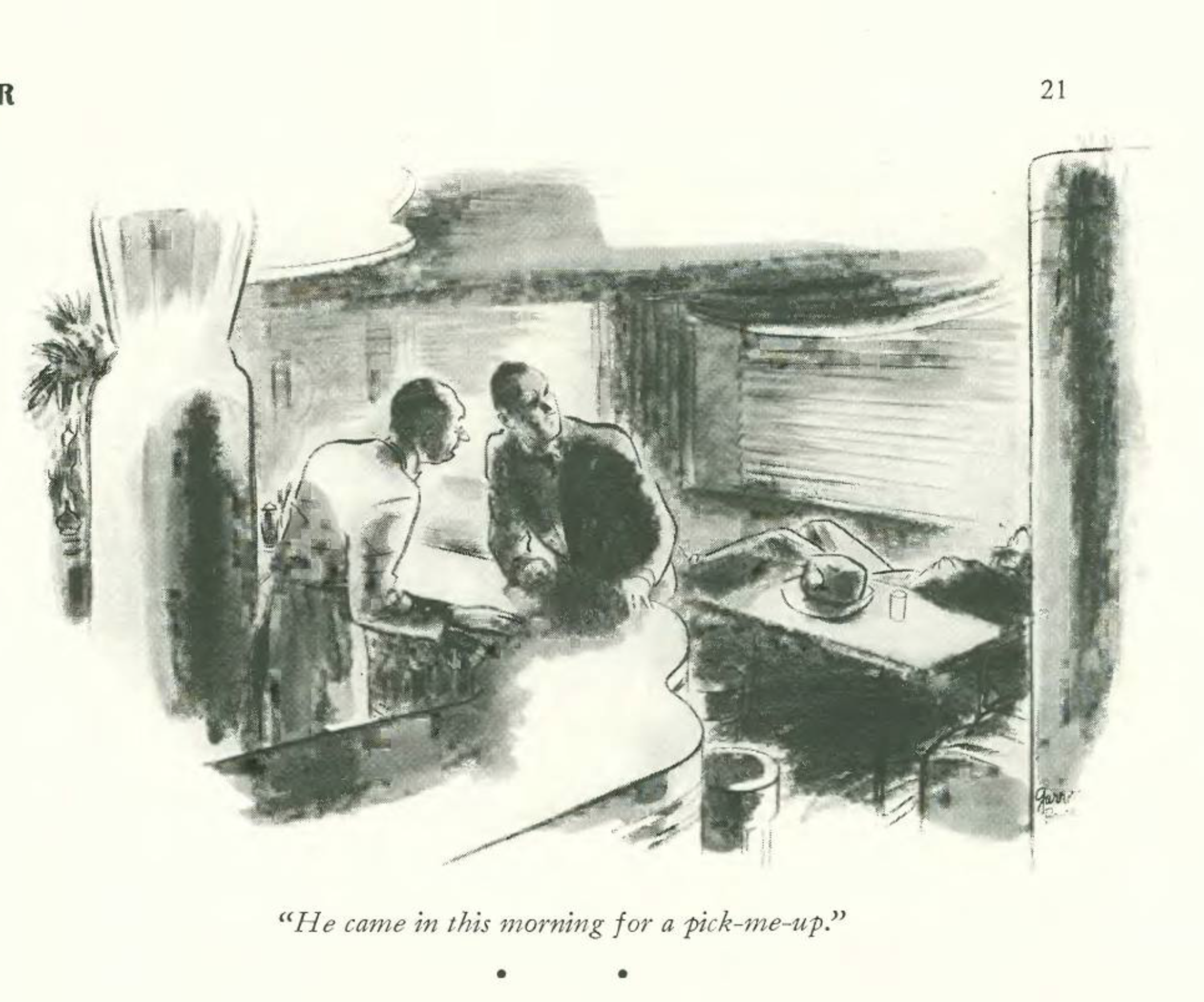
Spot drawing
Arthur Getz
04144
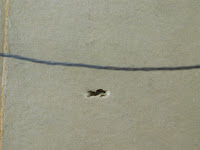
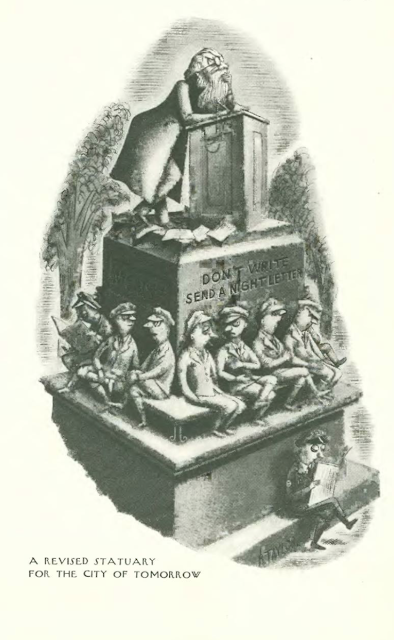
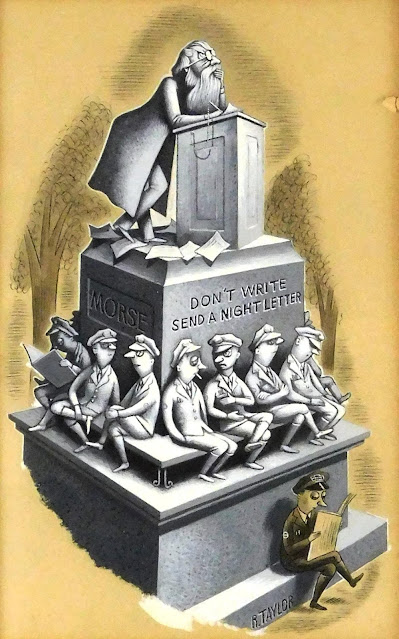
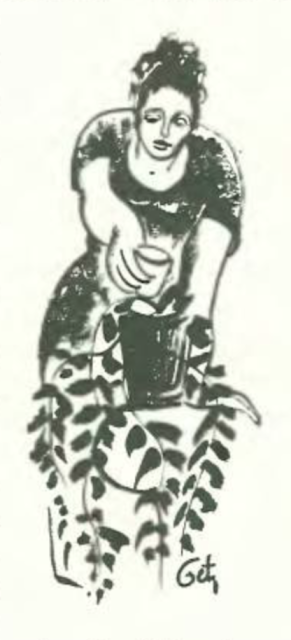
No comments:
Post a Comment